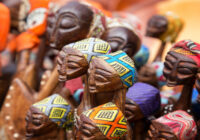My Kenyan friends have long asked me to write on their country. After much hesitation, I am penning my impressions. At the outset, readers must know that I am no expert on Kenya. So, they must take everything I write with a fistful if not a pinch of salt.
The most striking impression I have of Kenya comes from a walk I took from Southlands Estate to Valley Arcade. I didn’t take an Uber, taxi or matatu, the mythical minivan service. I walked over to the meeting against the express advice of my hosts who maintained I was taking an unsafe route. In their view, walking along the edge of Kibera, Nairobi’s legendary slum, demonstrated I was a naive mzungu asking for trouble.
Slums, Sewers, Women and Young Men
Truth be told, my hosts were right to fear my choice. During my walk, I went off the grid and took a detour through Kibera. It reminded me of slums in India but something was a bit different. There was aggression in the air that Indian slums lack. It is not that Indian slums are peaceful places with people happy in their poverty as some gullible tourists proclaim. Such poverty-ridden places have their slumlords, there are fights over water and vicious violence breaks out from time to time. Yet the air you breathe in India lacks the menace in the air of Kibera.
Having said that, the moment you make eye contact, speak to people and engage them at a basic human level, the menace dissipates even if it never entirely evaporates. Like their counterparts in India, people in Kibera struggle hard to make a living. Some walk for two hours to get to work. This means they walk four hours a day to do backbreaking jobs and this takes a heavy toll on their bodies.
Talking to people along the way, I heard the same familiar story again and again. Jobs were few, they paid little and the cost of living was rising ever higher. Many regretted leaving their villages and moving for the bright lights of the city. The urbanization of Africa and economic growth figures that economists are wont to extol seem to be based on the same Dickensian misery of 19th-century Britain. Unlike Britain, urbanization is not even being accompanied by industrialization. There is no engine of wealth generation in Kenya, which is buying its phones from China, its motorcycles from India and its cars from Japan.
Yet as I walked to my meeting, I could not fail to observe that Kenya is an extremely entrepreneurial society. This is not entrepreneurship of Silicon Valley, but of the small-scale variety one sees in emerging economies. Small shops were selling coal for families to buy for cooking or heating. Chicken in co-ops awaited slaughter as buyers felt their keels and picked the finest bird. Meat, eggs, vegetables, shoes, dresses, tea and snacks were all for sale. Pertinently, a majority of entrepreneurs seemed to be women. In India, this is certainly not the case.
There were other sights along my way. Mountains of garbage lay everywhere to see. Numerous open sewers were in full view. Corrugated rusting tin sheds dotted hillsides even as stray dogs lounged around. The stench was pervasive and so were groups of idle young men who eyed up strangers like me. Yet they were not quite as fearsome or ferocious as some had painted them out to be. At their essence, they were largely amiable young men who were looking for meaning, identity and things to do in the urban jungle they find themselves lost in.
It was interesting to hear what they had to say. Almost all of them had no faith in government. They believed we live in a Hobbesian world where the strong prey on the weak. They told me stories of friends falling in potholes, people dying in accidents and politicians making off with bucket loads of cash. Their view of the world was grim. Not only jobs and incomes, but also civic sense and hope seem to be in short supply, making fertile soil for crime.
Observations From Mothers, Fathers and Others
Eventually, I did make my way out of Kibera to Valley Arcade and could not fail to observe electric fences along the way. Apartment blocks and shopping complexes appeared with whiffs of luxury wafting beyond the fences. I could not help but observe that these posh places were mini-fortresses walled off from their surroundings.
I finally walked into Valley Arcade and found it to be a rather pleasant collection of restaurants and shops that could have been in Palo Alto or Singapore. I found it to be an enclave for Nairobi’s expats, affluent upper-middle classes and tourists. In the interest of making most of my time, I had set up many meetings with a diverse set of people. They ranged from a Luhiya mother of two children, a Swedish-Italian father of three with a Kikuyu wife, and a local friend who did her graduate degree at Harvard.
Some themes emerged again and again through various conversations. The Swedish-Italian was strongest in his denunciation of “white people” who have ruined Africa through colonization, misguided aid and unfair trade. At the same time, he damned African leaders for failing their people and the people themselves for falling prey to a culture of apathy that has led to a most sorry state of affairs. People don’t care because they feel helpless. They do not believe they have a chance and, therefore, try to work around the circumstances they find themselves in. They get on with life, assuming that corruption, incompetence and poverty are insoluble problems. The solution to potholes is fancy cars with better shock absorbers because no single individual can build a better road.
My friend also spoke about how the African man has lost his identity. He attributed this to colonization, urbanization, and the scale and speed of change. Gone is the village, lost is the need for bravery in battle and no longer is farming or herding cattle a viable vocation. The ancient rhythms of Africa are giving way to new realities, and African men are reacting to the loss of identity poorly. They are terrified of being seen as not manly enough. They do not do housework and avoid jobs that they deem as unworthy. As a result, the huge burden of work, at home and outside it, falls on women. To exemplify his point, my European friend narrated the story of a Kikuyu man who had bragged to his friends in a bar that he let the milk boil over to teach his wife a lesson.
Even as my European friend focused on culture, the Luhya lady worried about rising crime and the increasing costs of education. She told me that she is afraid to go out at night, that a friend had been attacked with iron rods and that people get robbed every evening on a daily basis. Later the conversation moved on to the boarding school epidemic in Kenya. She said that keeping up with the Joneses is now an epidemic in the country. Naturally, boarding schools price themselves well given such demand. She told me that boarding schools in Kenya can now be more expensive than their counterparts in the US or Britain. If what she said is true, the British have fundamentally and irrevocably altered the social fabric of Kenya forever.
Students from these posh boarding schools often leave the country for their undergraduate education. They aspire to be part of the Davos elite and become the comprador class for outside powers. They buy into the dominant ideology of New York and London, hook, line and sinker, and perpetuate the cultural hegemony of their colonial masters. Unlike Nelson Mandela, Kenya’s leaders do not wear shirts with African motifs. They outcompete one another to be better suited and booted, retaining little connection with either those who live in villages or in urban slums. Like the UK, Kenya is turning into a class-divided society and the relatively more horizontal social structure of various tribes is crumbling dramatically.
My friend who graduated from Harvard refuses to associate with her tribe. She aspires to a future when people in her country and in all of Africa outgrow tribal association. She talked about the challenge of health care in the country and how she was playing her role to solve it. Apparently, there are now two hospitals in each of the 47 counties in Kenya and four national referral hospitals. These are running relatively well.
Having said that, the demand for health care can still not be served by local hospitals. Many go to India, Dubai, Singapore, Britain and the US for further treatment. Over time, she saw things improving despite poverty and corruption. She thought that the 2010 constitution that devolves power to 47 counties might be the single biggest ray of hope for Kenya. Over time, it could lead to better roads, schools and hospitals for the people. I fervently hope she proves to be right.
The views expressed in this article are the author’s own and do not necessarily reflect Fair Observer’s editorial policy.
Support Fair Observer
We rely on your support for our independence, diversity and quality.
For more than 10 years, Fair Observer has been free, fair and independent. No billionaire owns us, no advertisers control us. We are a reader-supported nonprofit. Unlike many other publications, we keep our content free for readers regardless of where they live or whether they can afford to pay. We have no paywalls and no ads.
In the post-truth era of fake news, echo chambers and filter bubbles, we publish a plurality of perspectives from around the world. Anyone can publish with us, but everyone goes through a rigorous editorial process. So, you get fact-checked, well-reasoned content instead of noise.
We publish 2,500+ voices from 90+ countries. We also conduct education and training programs
on subjects ranging from digital media and journalism to writing and critical thinking. This
doesn’t come cheap. Servers, editors, trainers and web developers cost
money.
Please consider supporting us on a regular basis as a recurring donor or a
sustaining member.
Will you support FO’s journalism?
We rely on your support for our independence, diversity and quality.






